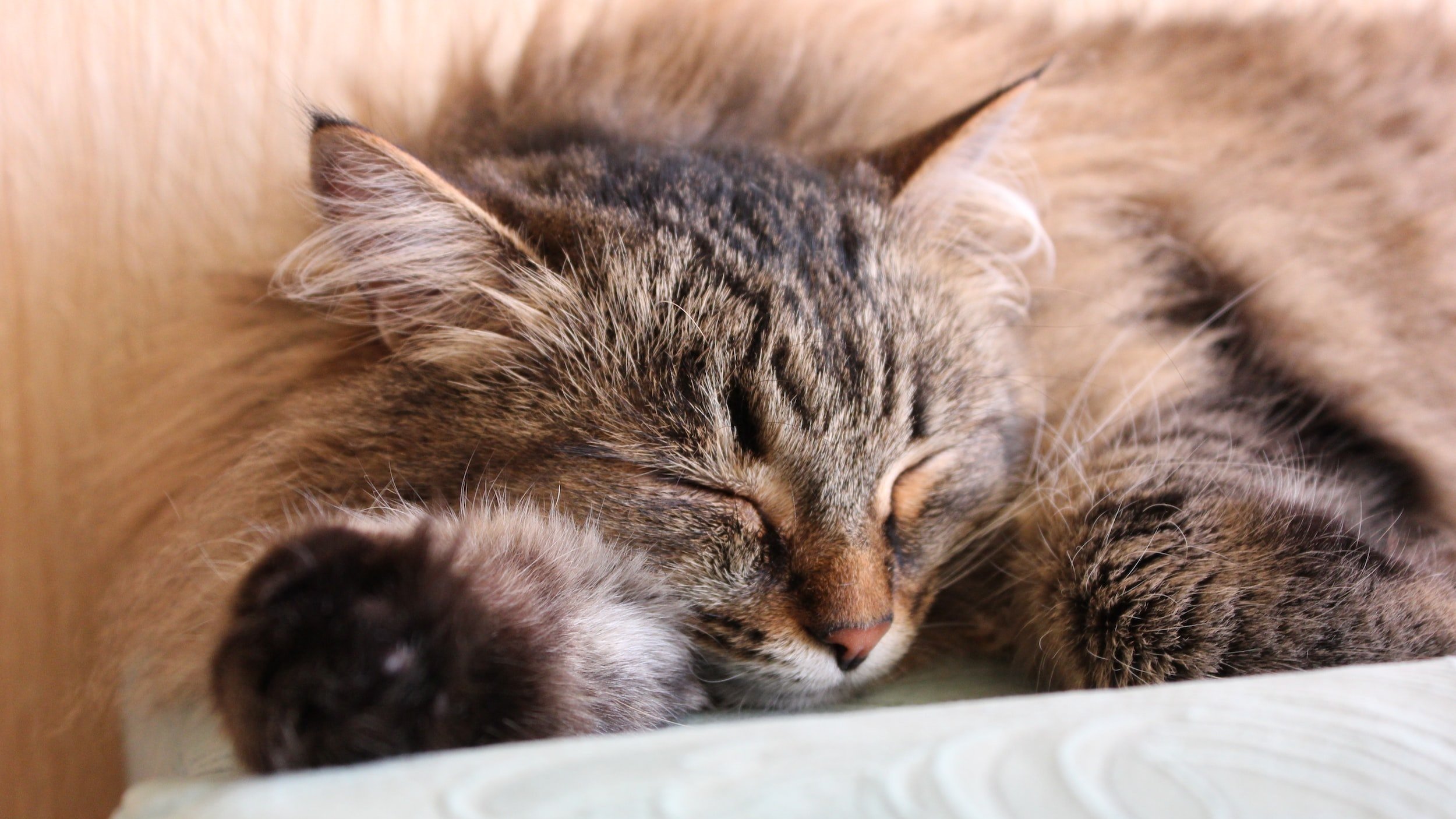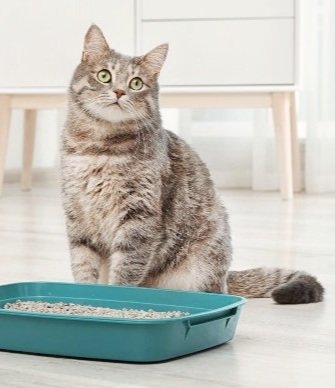Feline Enterogenic Covid (Fecov)
What is Fcov, how does it affect your cat’s life?
How does such a common virus wreck such havoc in a cat pawrent’s life?
Feline Enterogenic Corona Virus (Fcov) is a relatively prevalent virus that affects up to 80% of all cats and is the precursor to Feline Periodontitis. (FIP), a highly fatal disease.
FIP when identified or untreated late has an exceedingly bleak outlook for any cat.
Little is known about Fcov. It is often not talked about and shrouded in misinformation.
It is widely accepted that it is a case of rotten luck if your a cat is diagnosed with FIP as most cats do not suffer the mutation. But this blasé attitude towards inaction doesn’t sit well with us at WinterForest.
All literature suggests that the accepted cause for the mutation is stress. Stress, physical or environmental can causing a dip in immune system. Made worse when your cat has low genetic diversity, is aging or a young developing immune system. All are cited as the most likely reasons for the inability to beat the virus and allowing its mutation.
For most pawrents, there is little means of prevention as Fcov is common place. Although rarely the case , kittens have been documented to start shedding the virus from as young as 4 weeks of age, however most kittens have maternal anti bodies that protect them whilst they have access to mum’s milk.
A cat may contract and get reinfected by the virus at any point in its life . The virus survives up to 7 weeks on dry matter floating in the air. This simply means that ,visitors, the park, any other pet, groomer’s, boarding, shelter or even from it’s cattery are all viable points of exposure.
As a pet pawrent, collecting your kitten at 17 weeks from a cattery that makes no attempts to prevent your kitten from exposure will be too late for preventive measures.
WinterForest has practices in place to prevent this from happening. We believe in preventing this pain and loss where possible from occurring. We have yet to concede and are one of the few catteries that are Fcov negative.
Fcov is contracted by touch. Once a cat licks a surface with the virus, it will gain entry into its system.
We were lucky enough to have corresponded with an antiviral laboratory and gained additional insight as well as scoured a number of scientific journals to condense our findings and implement enhanced measures to ensure our cats and kittens continue to be Fcov negative.
FIP disproportionately affects males below the age of 18 months and above the age of 12 years. Treatment is exceeding expensive especially if you reside in a country with no legal means of obtaining treatment. The best approach for a pet pawrent is preventing your kitten from contracting the virus in the first 18 months of its life and ensuring that it has a robust immune system to ward off the effects of the virus when it is exposed.
WinterForest is a Fcov negative cattery. In addition to having a 0% inbreeding co-efficient ensuring diversity, we test all our kings and queens at the vet for Fcov. We test each of our queens prior to weaning as well as take random tests on our kittens.
Achieving this, has been a goliath task. Especially for our cattery where our cats have all the freedoms in our home as pets.
Multiple automated litter boxes and space to ensure that each cat is happy , ensures that their stress levels are low and that they won’t be in contact with any soiled litter. Our resources allow for ample testing, isolation, quarantine and treatment facilities for all incoming kings and queens.
A Fcov negative cattery does not mean that our cats have never been exposed nor does it mean that they may not have antibodies to the virus. It basically means that none of them are shedding the virus, limiting possible exposure to any kittens.
The virus is so common place, that zero exposure within a lifetime is highly unlikely.
Cats with antibodies have some immunity against it, possibly from previous exposure and are able to quickly recover from the virus. Kittens may acquire such anti bodies from their mothers through their milk. There is no known literature on how long such anti bodies last after being weaned or exposed.
Our rigorous testing ensures that kittens are not exposed to the virus whilst in our care.
This is a double edged sword as they may not have sufficient anti-bodies to fight off the virus should they be exposed to it once they leave us. Keeping in mind the dangerous window of 18 months, we strongly suggest that our graduates are kept indoors and refrain from unnecessary social cat interactions until then.
We do all we can to ensure our kittens get a good head start in their lives. Once our kittens go onto their furever homes, the task is now handed over to their pawrents to carry on the vigilance and some of our nutritional best practices.
Acquiring a kitten from a Fcov negative cattery is likely to be more expensive due to all the additional measures taken to prevent cats and kittens from spreading or contracting the virus.
Zero shedding = lesser probability of acquiring the virus. Thereby saving you the possible heart break of loosing a kitten to FIP.
We are blessed enough to have the resources and given access to veterinary test kits as well as anti-virals that aid in our quest to ensure our cattery remains Fcov negative.
This opportunity allows us rapid response should we require to intervene and enables our kittens to be Fcov free.
Cat’s start to shed Fcov a week after becoming exposed to it. It is shed at high levels for 2 to 8 months before the body’s immune system kicks in to eradicates the virus or keep it in a dormant stage ( much like chicken pox in humans, recurring when our immune system is weak). Most cats stop shedding their virus whilst others continue to be a reservoir and shed it for the rest of their lives infecting others that share its litter box.
When a cattery doesn’t take any preventive measures, the virus will continuously circulate within its members, adapting and mutating, possibly reinfecting and causing one or more members to shed the virus at any given time and subjecting all its kittens to exposure.
Preventive measures are exceeding expensive and are rarely available to most. Thankfully, most cats and kittens in a pet household rarely exhibit severe effects of the virus. Which begs the question, what should a pet pawrent, with a Fcov negative kitten from us do? They are without such access and resources especially for those with an existing cat?
The professional view of the researchers at the laboratories is that prevention, whilst important is usually far to late and difficult for most pawrents. It is only viable at the cattery level and measures must be taken as is the responsible approach.
Pawrents should focus on ensuring that their furries are able to fight off the effects of the virus and when exposed or should it resurface. This is not as difficult.
Pawrents should maintain an impeccable litter cleaning regime and implement supportive therapies in their early life.
The first, is reduce virus replication within the body. This is achieved by increasing the immune response., thus preventing the virus from taking root when exposed and to identify and destroy infected cells as quickly as possible. There are tried and tested supplements that have been shown to reduce virus shedding and effects. They possibly preventing the virus from taking root and assaulting your Kitten’s system. Simply adding proven pre and probiotics to their food helps in this process.
The next is to minimize stress. Stress to your existing cat will cause it to start shedding the virus that is likely dormant in their system. This is why it is important to observe the rule of 3.
WinterForest always advises pawrents to ensure their current cats are upto date on their vaccines, parasite treatments and deworming a minimum of 3 weeks prior to bringing home a new kitten. This gives their body enough time to recuperate prior to the stresses of integrating a new kitten.
This reduces the amount of virus your current cat may shed and expose your new kitten to.
Fecov test is usually done at the Vet’s clinic. If your cat is positive, prevent it from sharing litter boxes with the others. You should also switch over to a fuller’s earth based cat litter and think about investing in an automatic litter box.
Certain brands of fuller earth litter made from bentonite clays in the USA have been found to inhibit the spread despite shared litter boxes.
Litter boxes should be emptied frequently and disinfected with bleach between each change. The virus can survive upto 7 weeks in dried samples but easily destroyed by exposure to diluted bleach. Its absolutely crucial to ensure that there are sufficient litter boxes and prompt clearing of waste. Everyone can attest to how carefree and clumsy kittens are in their early life, stepping in just about anything.
Diet. As its name suggests the virus is enterogenic. Upon ingestion it first claims its home in your cats mouth for a short period and maybe transmitted by saliva. It subsequently finds it home in the cat’s small intestines, destroying its borders and affecting absorption, weakening your cat slowly.
Cats and kittens that first acquire the virus have been documented to have loss of appetite and loose stools in the onset, as the virus progresses your cat is increasingly unable to absorb the necessary nutrition from the damage in the small intestines.
Research has shown that simply adding effective pre and probiotics ( for example forti funa ) to your cat’s diet leads to a decrease in viral shedding. This can be coupled with the use of beta glucans to boost their immune and heart health. Both are readily accessible and require no veterinary prescription. Should it be necessary to take a step further , you may speak with your vet on enhancing the treatment with recombinant feline interferon omega in hopes that shedding will diminish, as will the possibility of spreading within your household. This gives your cat or kitten supportive therapy whilst its immune system matures or is able to cope and hopefully eventually stop shedding. This supportive therapy maybe expensive and is usually not be deemed necessary by your vet.
Stronger anti virals are not readily available to ordinary pawrents and the cost for such use of is exceedingly high.
Cats or kittens that are Fcov positive may benefit from supplementation of complete , comprehensive raw diets. These maybe in the form of freeze dried or food from a competent raw food kitchen.
Such diets use less supplements and feature heavier animal based components for calories , nutrients and minerals. This larger component makes the diet more biologically available. Taxing their digestive system less and increases absorption. An added benefit of a diet predominantly of animal origins, it raises the PH of your pet’s GI. This makes the environment more hostile to bad bacteria, increases enzymes and good bacteria, all working to facilitate quicker digestion and better absorption.
We hope that you have found this summary helpful and creates awareness on the importance of Fcov prevention and clears up some mis conceptions on the futility of eradicating and minimizing exposure to the virus. I am always reminded of the story of the little girl throwing back a star fish that washed up onto shore despite the thousands of others that are stranded on land. It maybe a seemingly futile endeavor but makes a whole world of difference to the starfish that was returned to the ocean.
WinterForest can always be reached for our source materials to substantiate our findings.




